Unsecured vs. Secured Funding: A Comprehensive Guide for Business Owners
Lets Get Started
When seeking financing for your business, it’s important to understand the differences between secured and unsecured funding options. In this blog post, we’ll dive into the key distinctions, advantages, and disadvantages of each type of funding, so you can decide on the best funding option for your business.
Understanding Secured and Unsecured Funding
In the context of business loans, security refers to the collateral or assets that a borrower pledges to a lender to secure a loan. This collateral serves as a form of protection for the lender, as it can be seized and liquidated if the borrower fails to repay the loan as agreed.
By providing security, the borrower reduces the risk of financial loss for the lender, which can result in more favorable loan terms, such as lower interest rates and longer repayment periods. Common types of collateral used to secure business loans include real estate, equipment, inventory, accounts receivable, and cash savings.
Secured Loans
Secured loans are backed by collateral, such as property, equipment, or other valuable assets. This form of financing offers lenders a sense of security since they can seize the collateral if the borrower defaults on the loan.
A number of types of business loans can be secured: term loans, business lines of credit, and, of course, equipment loans all fit under this umbrella. Some examples of secured loans include Auto loans (the vehicle often serves as collateral in a car loan), home equity loans, home equity line of credit (HELOC), secured credit cards, as well as secured personal loans.
Unsecured Loans
Unsecured loans, on the other hand, do not require collateral. Lenders base their decision to approve a loan primarily on the borrower’s creditworthiness, credit score, and credit history. Some examples of unsecured loans include personal loans, credit cards, student loans, medical bills and some business loans.
Alternative Financing
Though also unsecured, several types of financing are not, by definition, loans. Invoice factoring, for example, requires no collateral; instead, a factoring provider purchases a business’s unpaid invoices at a slight discount. That purchase provides an upfront deposit to the recipient’s bank account with no form of collateral needed.
Merchant cash advances work similarly. Merchant cash advances (MCA) are not loans – instead, an MCA provider purchases a percentage of a company’s future revenue. The MCA recipient then makes daily or weekly remittances based on their sales.
Advantages and Disadvantages of Secured and Unsecured Funding
Whether you opt for secured debt, unsecured debt, or alternative financing, there are advantages and disadvantages for each.
Advantages of Secured Loans
Secured business loans offer several advantages, including:
Lower interest rates: Collateral reduces the lender’s risk, resulting in lower interest rates compared to unsecured loans, making borrowing more affordable.
Higher borrowing limits: Secured loans allow for higher borrowing amounts, beneficial for businesses needing significant funding.
Longer repayment terms: Extended repayment terms allow businesses to spread payments over a longer period, making loans more manageable.
Easier approval: The collateral makes it easier for businesses with less-than-perfect credit to obtain financing.
Improved credit: Timely payments on secured loans can help businesses build or improve their credit score, making it easier to secure future loans.
Disadvantages of Secured Loans
Secured business loans also have several disadvantages, such as:
Risk of losing collateral: If you default on the loan, the lender has the right to seize and liquidate the collateral, potentially losing valuable assets.
Limited flexibility: Secured loans often have stricter terms and conditions compared to unsecured loans, which may limit your flexibility in using the funds.
Longer application process: The process of obtaining a secured loan can take longer due to the evaluation and appraisal of the collateral and additional documentation.
Additional fees: Secured loans may have additional fees related to collateral appraisal, registration, and maintenance, increasing the overall cost of borrowing.
Potential restrictions: Some lenders may place restrictions on how the loan proceeds can be used or require periodic updates on the collateral’s status or value.
Advantages of Unsecured Loans
Faster approval process: As there’s no need for collateral valuation, unsecured loans usually have a quicker approval process compared to secured loans, allowing businesses to access funds faster.
Flexibility in the use of funds: Unsecured financing often comes with fewer restrictions on how the funds can be used, giving business owners more freedom to allocate the funds as needed.
Less documentation: Obtaining unsecured financing typically involves less paperwork and documentation, making the application process simpler and more streamlined.
Suitable for a variety of businesses: Unsecured financing can be an excellent option for startups and businesses with little or no collateral or for those seeking financing for short-term needs, such as working capital or emergency expenses.
Disadvantages of Unsecured Loans
Higher Interest Rates: Unsecured loans pose a higher risk for lenders, resulting in higher interest rates compared to secured loans.
Lower Loan Amounts: Lenders may approve smaller loan amounts for unsecured loans due to the increased risk associated with a lack of collateral.
Shorter Repayment Terms: Unsecured loans often have shorter repayment terms, leading to higher monthly payments.
Factors to Consider When Choosing Between Secured and Unsecured Funding
Credit Score and Credit History
Your credit score and history play a significant role in determining your eligibility for secured and unsecured loans. Borrowers with good credit may have an easier time qualifying for unsecured loans, while those with bad credit may need to opt for secured loans to secure financing.
Loan Amount and Repayment Terms
Consider the loan amount you need and the repayment terms you prefer when deciding between secured and unsecured funding. A secured loan may be the better option if you require a larger loan amount or longer repayment terms.
Collateral Availability
Evaluate your assets to determine if you have suitable collateral for a secured loan. If you don’t have collateral or aren’t comfortable risking valuable assets, an unsecured loan may be a more suitable choice.
Interest Rates
Take into account the interest rates associated with each type of loan. Secured loans typically have lower interest rates due to the reduced risk for lenders, while unsecured loans often come with higher rates. However, interest rates can vary based on the lender, your creditworthiness, and other factors, so comparing different loan offers is essential.
Purpose of the Loan
Consider the purpose of the loan when choosing between secured and unsecured funding options. For instance, a secured loan might be more appropriate if you’re looking to finance a specific asset or purchase. On the other hand, if you need funds for general business expenses, an unsecured loan may be a better fit. Are you looking to take care of some debt consolidation? Buying a vehicle? Looking for working capital? Different financing and loans work for different situations.
Tips for Improving Your Chances of Approval for Secured and Unsecured Funding
Improve Your Credit Score
Having a good credit score is essential for both secured and unsecured loans. To improve your credit score, make timely payments, maintain a low credit utilization ratio, and monitor your credit report for errors.
You could request a boost to your credit limit on any existing lines of credit to help your utilization ratio. You could also ensure you have no missed payments in your history. Boosting your credit score makes it more likely you can acquire the right type of loan or financing for your business.
Build a Strong Business Plan
A well-crafted business plan can improve your chances of securing funding, as it demonstrates your business’s potential for success. Be sure to include detailed financial projections, market research, and a clear strategy for growth. You should be able to show potential financing providers that there’s less risk to lending to your company since you’ve already built loan payments into that business plan, for example.
Research Lenders and Loan Options
Take the time to research various lenders and loan options, comparing interest rates, repayment terms, and eligibility requirements. This will help you find the best funding option for your specific needs and circumstances.
Be Prepared with Documentation
Gather all necessary documentation before applying for a loan, including financial statements, tax returns, and a detailed business plan. This will help expedite the application process and improve your chances of approval.
Consider Alternative Financing Options
If you’re unable to secure a traditional secured or unsecured loan, consider alternative financing options such as crowdfunding, angel investors, or venture capital.
Conclusion
When it comes to choosing between secured and unsecured funding for your business, it’s essential to weigh the pros and cons of each option carefully. Consider factors such as your credit score, the loan amount and repayment terms, the availability of collateral, and the purpose of the loan. By understanding the differences between secured and unsecured loans and evaluating your business’s needs, you can make an informed decision about the best financing option for your business.





